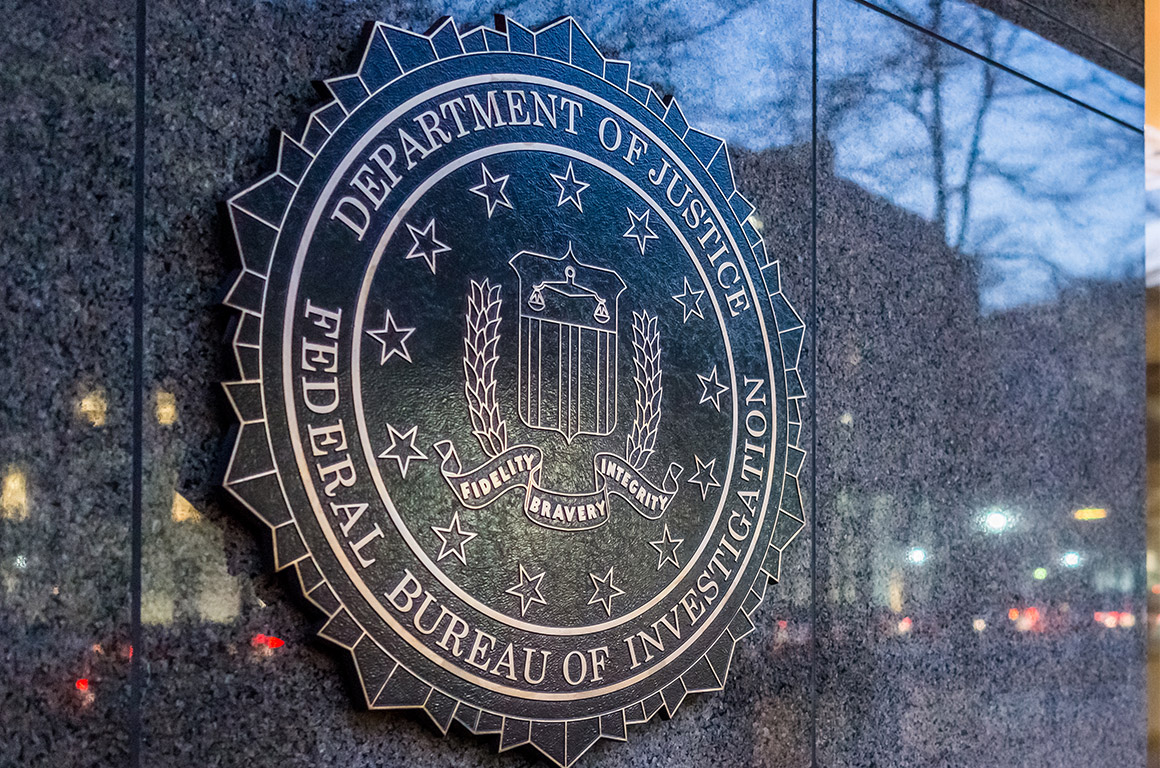Privacy and Surveillance
FBI v. Fikre
Whether the government can overcome the voluntary cessation exception to mootness by removing an individual from the No Fly List when the government has not repudiated its decision to place him on the List and remains free to return him to the List for the same reasons and using the same procedures he alleges were unlawful.
Status: Ongoing
View Case
Learn About Privacy and Surveillance
Featured
U.S. Supreme Court
Apr 2022
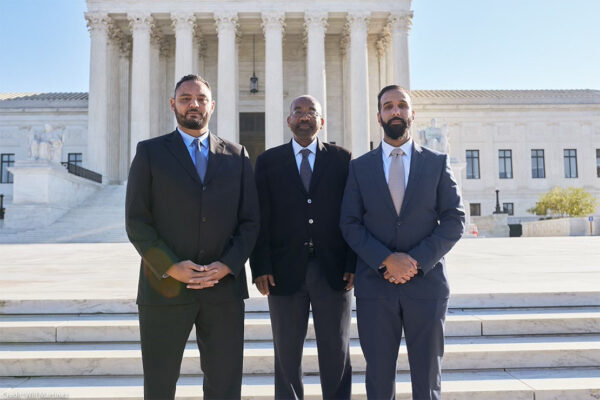
Privacy and Surveillance
+2 Issues
FBI v. Fazaga
In a case scheduled to be argued before the U.S. Supreme Court on November 8, 2021, three Muslim Americans are challenging the FBI’s secret spying on them and their communities based on their religion, in violation of the Constitution and federal law. In what will likely be a landmark case, the plaintiffs — Yassir Fazaga, Ali Uddin Malik, and Yasser Abdelrahim — insist that the FBI cannot escape accountability for violating their religious freedom by invoking “state secrets.” The plaintiffs are represented by the Center for Immigration Law and Policy at UCLA School of Law, the ACLU of Southern California, the American Civil Liberties Union, the Council for American Islamic Relations, and the law firm of Hadsell Stormer Renick & Dai.
All Cases
35 Privacy and Surveillance Cases

Court Case
Oct 2014
Privacy and Surveillance
ACLU v. FBI - FOIA Case for Records Relating to Patriot Act Section 215
In May 2011, the ACLU filed a Freedom of Information Act request with the Justice Department seeking information about the government's use and interpretation of Patriot Act Section 215, which authorizes the government to obtain “any tangible thing” that is “relevant to” a terrorism investigation. Our subsequent FOIA lawsuit to enforce the request compelled the government to release dozens of documents, although many others were withheld from the ACLU and the public. The ACLU continued to fight for additional disclosures concerning the government’s use of Section 215 to secretly collect Americans’ information in bulk, but the district court eventually granted the government’s motion for summary judgment in March 2015.
Explore case
Court Case
Oct 2014

Privacy and Surveillance
ACLU v. FBI - FOIA Case for Records Relating to Patriot Act Section 215
In May 2011, the ACLU filed a Freedom of Information Act request with the Justice Department seeking information about the government's use and interpretation of Patriot Act Section 215, which authorizes the government to obtain “any tangible thing” that is “relevant to” a terrorism investigation. Our subsequent FOIA lawsuit to enforce the request compelled the government to release dozens of documents, although many others were withheld from the ACLU and the public. The ACLU continued to fight for additional disclosures concerning the government’s use of Section 215 to secretly collect Americans’ information in bulk, but the district court eventually granted the government’s motion for summary judgment in March 2015.
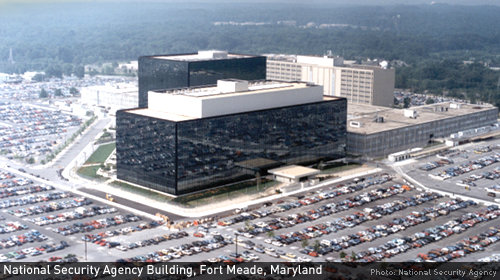
Court Case
Sep 2014
Privacy and Surveillance
ACLU v. NSA - Challenge to Warrantless Wiretapping
In 2006, in the first federal challenge ever argued against the NSA's warrantless wiretapping program, the ACLU defeated the Bush administration when a district court declared the program unconstitutional. But in July 2007, the 6th Circuit overturned that decision. The ACLU asked the Supreme Court of the United States to consider the ruling, but in February 2008, the Court declined to review the challenge.
Explore case
Court Case
Sep 2014

Privacy and Surveillance
ACLU v. NSA - Challenge to Warrantless Wiretapping
In 2006, in the first federal challenge ever argued against the NSA's warrantless wiretapping program, the ACLU defeated the Bush administration when a district court declared the program unconstitutional. But in July 2007, the 6th Circuit overturned that decision. The ACLU asked the Supreme Court of the United States to consider the ruling, but in February 2008, the Court declined to review the challenge.
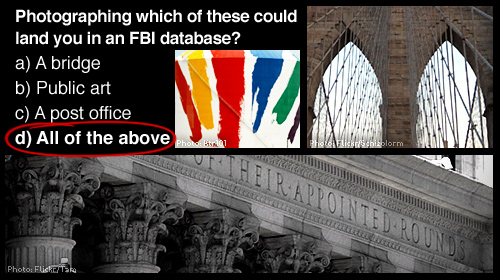
California
Jul 2014
Privacy and Surveillance
Gill v. DOJ – Challenge to Government's Suspicious Activity Reporting Program
The ACLU of California, the ACLU, Asian Americans Advancing Justice - Asian Law Caucus, and the law firm Bingham McCutchen have filed a lawsuit challenging the federal government's Suspicious Activity Reporting program — a vast expansion of the federal government's domestic intelligence network. The SAR program supposedly facilitates the collection and sharing of information about activity that appears "suspicious," but in practice it targets First Amendment-protected activity, encourages racial and religious profiling, and violates federal law. The plaintiffs are five U.S. citizens whose information has been entered into counterterrorism databases for engaging in lawful conduct, and who have been subject to unwarranted law enforcement and scrutiny. The lawsuit was filed in July 2014 in the U.S. District Court for the Northern District of California. In March 2017, the District Court granted the government’s motion for summary judgment, upholding the SAR program’s standard for data collection. We are appealing that ruling to the Ninth Circuit Court of Appeals.
Explore case
California
Jul 2014

Privacy and Surveillance
Gill v. DOJ – Challenge to Government's Suspicious Activity Reporting Program
The ACLU of California, the ACLU, Asian Americans Advancing Justice - Asian Law Caucus, and the law firm Bingham McCutchen have filed a lawsuit challenging the federal government's Suspicious Activity Reporting program — a vast expansion of the federal government's domestic intelligence network. The SAR program supposedly facilitates the collection and sharing of information about activity that appears "suspicious," but in practice it targets First Amendment-protected activity, encourages racial and religious profiling, and violates federal law. The plaintiffs are five U.S. citizens whose information has been entered into counterterrorism databases for engaging in lawful conduct, and who have been subject to unwarranted law enforcement and scrutiny. The lawsuit was filed in July 2014 in the U.S. District Court for the Northern District of California. In March 2017, the District Court granted the government’s motion for summary judgment, upholding the SAR program’s standard for data collection. We are appealing that ruling to the Ninth Circuit Court of Appeals.
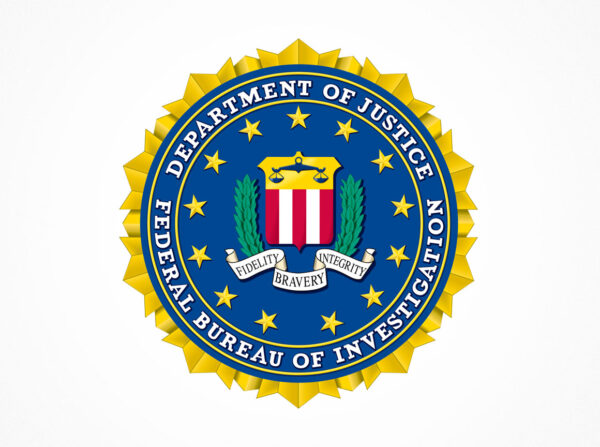
Court Case
Oct 2013
Privacy and Surveillance
+4 Issues
ACLU v. FBI - eGuardian FOIA Lawsuit
Government documents obtained by the ACLU show that nationwide programs that collect so-called "Suspicious Activity Reports" provide inadequate privacy safeguards and guidance on the definition of "suspicious activity," leading to violations of Americans' First Amendment and privacy rights, and to racial and religious profiling.
Explore case
Court Case
Oct 2013

Privacy and Surveillance
+4 Issues
ACLU v. FBI - eGuardian FOIA Lawsuit
Government documents obtained by the ACLU show that nationwide programs that collect so-called "Suspicious Activity Reports" provide inadequate privacy safeguards and guidance on the definition of "suspicious activity," leading to violations of Americans' First Amendment and privacy rights, and to racial and religious profiling.

Court Case
May 2013
Privacy and Surveillance
Warrantless Electronic Communications FOIA Requests
The ACLU has filed Freedom of Information Act (FOIA) requests to learn more about the government’s practice of reading people’s email, text messages, social networking feeds and other private electronic communications without a warrant.
Explore case
Court Case
May 2013

Privacy and Surveillance
Warrantless Electronic Communications FOIA Requests
The ACLU has filed Freedom of Information Act (FOIA) requests to learn more about the government’s practice of reading people’s email, text messages, social networking feeds and other private electronic communications without a warrant.
